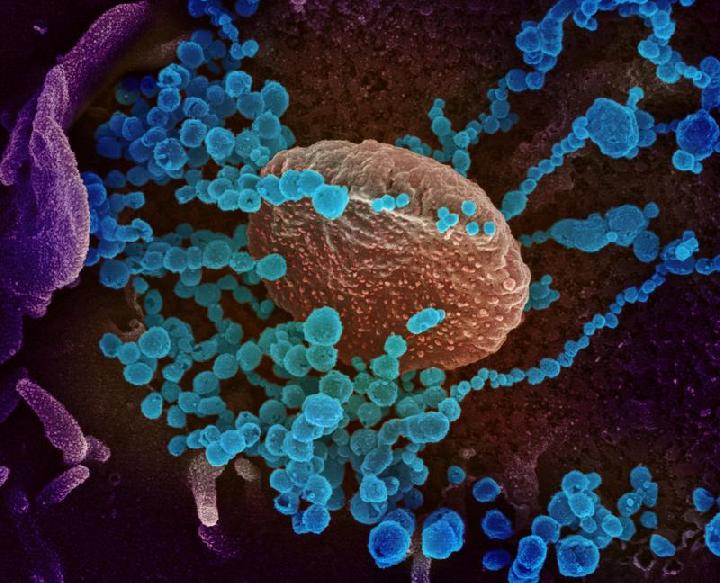Future of Public Health: Mobilizing COVID-19 Partnerships for Forgotten Diseases
Translator
Tempo.co
Editor
Laila Afifa
Sabtu, 28 Mei 2022 11:05 WIB

By: Cazadira F. Tamzil and Indira Zahra-Aridati, education and policy analysts; currently building Global Future X (by Pijar Foundation) – a movement to catalyze collaborative public, private, and community actions to solve the future now.
Health is a fundamental right. This is enshrined in global conventions, namely the International Covenant on Economic, Social, and Cultural Rights (ICESCR) which Indonesia has ratified through Law No. 11 / 2005. Yet, even before the COVID-19 pandemic, many could not realize this right to health. Global health and social systems have long neglected many diseases, partly those disproportionately impacting lower socio-economic classes. The pandemic and its accompanying mobility restrictions have exacerbated the situation, as hospitals and community health centers become less accessible for detection, prevention, or treatments.
While the pandemic has been a devastating crisis, it has simultaneously generated a powerful legacy for our global future: a robust coalition of public, private, and community actors with the systemic capacity to address urgent public health threats. As we begin to recover and reimagine the future of public health, we should consider directing some newfound COVID-19 capacities to tackle the world’s forgotten diseases, particularly to reduce deficits in public health information and infrastructure logistics.
In Indonesia, while the COVID-19 momentum is fresh, we could start with epidemiologically-similar respiratory diseases that contribute to high mortality, namely Tuberculosis (TB) and pneumonia. To mention but a few statistics, Indonesia has the world’s third-highest number of TB patients after India and China. As regards pneumonia, it is the top infectious killer of children under five in Indonesia, infecting over half a million children and leading to over ten thousand deaths annually.
COVID-19: A Wake-Up Call for Global Public Health
Global health systems have had gaps even before COVID-19. Such systems are rife with many ‘forgotten diseases’ – those generating heavy burdens yet scant attention and mitigation capacities. Many such forgotten diseases are those disproportionately affecting lower socio-economic classes and rural areas.
The pandemic has exacerbated such forgotten diseases since mobility restrictions have made hospitals or community health centers less accessible for early detection, preventive measures like vaccination or immunization, and post-diagnosis treatments. According to UNICEF’s 2021 Annual Report, amid the pandemic in Indonesia, 1 in every 10 households was unable to access children's immunization services, while 3 in every 4 households were unable to seek treatment for sick children.
UNICEF’s other survey in 2021 found that at the height of the pandemic, only 45% of respondents visited hospitals and 64% visited community health centers to access routine health services such as immunization, from the previous year’s 79% and 94%, respectively. While a devastating crisis, COVID-19 has left a powerful legacy for our global future: a coalition of public, private, and community actors in a scale and systemic capacity was unseen before. There was such large solidarity and partnerships against COVID-19 as a common enemy, which overcame gaps in our existing health systems. One powerful evidence is how Indonesia could achieve over 78.23% COVID-19 national vaccination rate (two doses) as of 28 April 2022.
As we begin to emerge from the pandemic, we should proportionally leverage these system capacities to address the world’s forgotten diseases.
<!--more-->
Forgotten Diseases: TB and Pneumonia
While the COVID-19 momentum is fresh, we can direct the same modalities used to fight COVID-19 to address epidemiologically similar respiratory diseases such as TB and pneumonia, both of which contribute to high mortality in Indonesia.
TB and pneumonia are often forgotten as they disproportionately affect those with lower income – both in Indonesia and globally. The majority of cases worldwide are found in developing countries. While TB and pneumonia are not exclusively diseases of the poor, risks are heightened in communities that experience nutritional and welfare deprivations compounded by poverty, such as malnutrition, indoor air pollution, or lack of access to primary healthcare. Left undiagnosed and untreated, the two preventable diseases become lethal.
Until COVID-19, TB was the world’s deadliest infectious disease, with 10 million new infections and 1.4 million deaths worldwide in 2019. Global TB mitigation targets are mostly off-track and for the first time in over a decade, TB deaths have increased due to reduced diagnosis and treatment access.
While Indonesia has the world’s second-highest TB burden, Indonesia is still rife with shortcomings in detection, prevention, and post-diagnosis treatment for TB. According to the nation’s Ministry of Health, only 49% of the estimated 824.000 new cases were detected and treated last year, which means that nearly half a million people have not been treated and are at risk of becoming a transmission source.
Pneumonia is another critical respiratory illness. Globally and in Indonesia, pneumonia is the leading cause of death among children under five, leading to over 800.000 deaths a year, or one child every 39 seconds. In 2018, Indonesia was ranked sixth highest in pneumonia-related mortality in children under five, with an estimated 19.000 deaths.
In line with the Sustainable Development Goals (SDGs), Indonesia has set commendable targets to end TB by 2030 and roll out nationwide children's pneumonia vaccination by 2024.
The question is, how can we leverage the existing COVID-19 systemic capacity to achieve such targets?
Mobilizing COVID-19 Modalities for TB and Pneumonia in Indonesia
We can leverage COVID-19-generated systems to address two prevalent deficits in the TB and Pneumonia landscape: public health information and infrastructure logistics.
First, we can activate COVID-19 public health information channels to socialize TB and pneumonia framing as urgent, collective threats, as well as information regarding their detection, prevention, and treatment mechanisms. These information channels include COVID-19 digital platforms and community information networks. The current national COVID-19 surveillance system can also be beefed up to track-and-trace cases and ensure those who have been diagnosed receive proper treatment.
Second, we can mindfully redirect any unused COVID-19 logistics to improve accessibility to TB and pneumonia detection, preventive measures such as vaccination, and treatment, especially in more remote areas. Such COVID-19 logistics include telemedicine company-supported drug distribution for COVID-19 patients in isolation.
A healthy global future is impossible without tackling forgotten diseases. Addressing such diseases would be impossible without acceleration in solidarity and meaningful public, private, and community partnerships as seen amid COVID-19. To start with TB and pneumonia does not mean that we end with them. There are many other forgotten diseases, which we should take calibrated steps to address. Let’s not let COVID-19 pain go to waste.
*) DISCLAIMER
Articles published in the “Your Views & Stories” section of en.tempo.co website are personal opinions written by third parties, and cannot be related or attributed to en.tempo.co’s official stance.




















